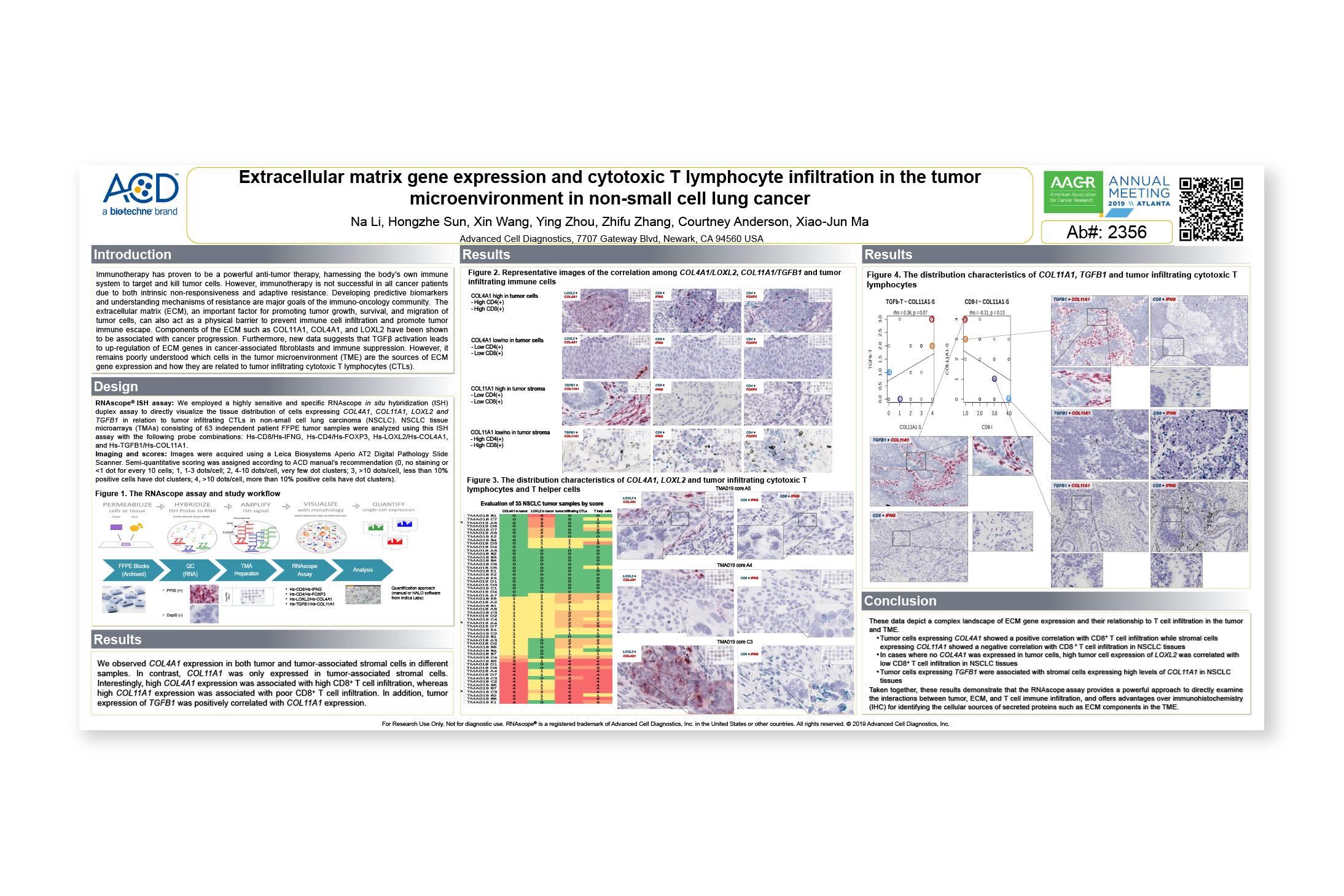Extracellular matrix gene expression and cytotoxic T lymphocyte infiltration in the tumor microenvironment in non-small cell lung cancer - Presented at: AACR 2019
Scientific Meeting PostersImmunotherapy has proven to be a powerful anti-tumor therapy, harnessing the body’s own immune system to target and kill tumor cells. However, immunotherapy is not successful in all cancer patients due to both intrinsic non-responsiveness and adaptive resistance. Developing predictive biomarkers and understanding mechanisms of resistance are major goals of the immuno-oncology community. The extracellular matrix (ECM), an important factor for promoting tumor growth, survival, and migration of tumor cells, can also act as a physical barrier to prevent immune cell infiltration and promote tumor immune escape. Components of the ECM such as COL11A1, COL4A1, and LOXL2 have been shown to be associated with cancer progression. Furthermore, new data suggests that TGFβ activation leads to up-regulation of ECM genes in cancer-associated fibroblasts and immune suppression. However, it remains poorly understood which cells in the tumor microenvironment (TME) are the sources of ECM gene expression and how they are related to tumor-infiltrating cytotoxic T lymphocytes (CTLs
